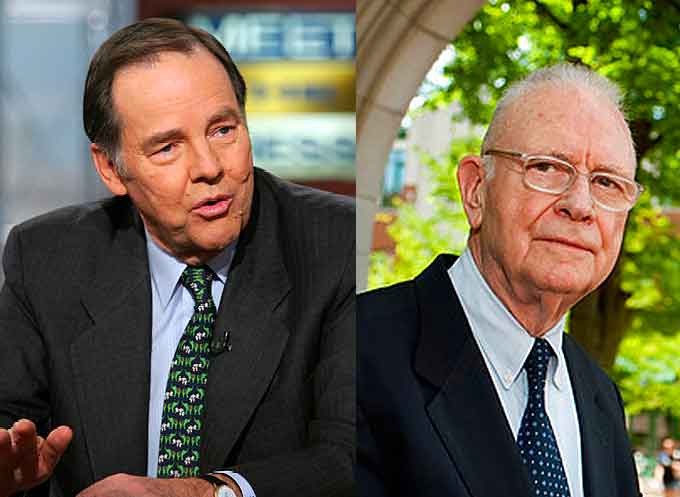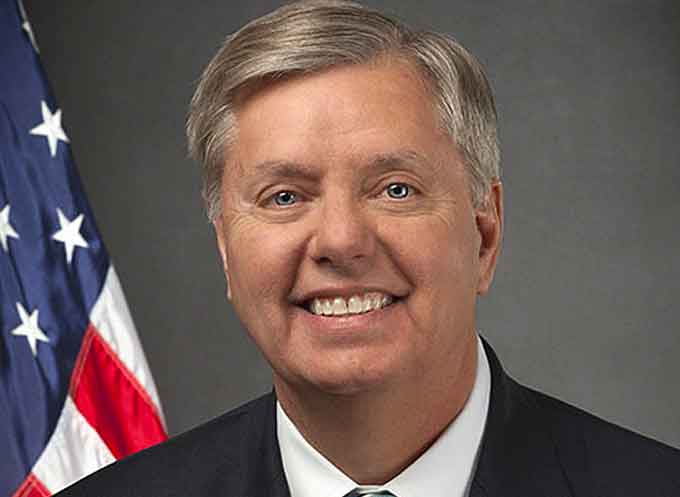
The United States Institute of Peace convened the first meeting of a congressionally-mandated, bipartisan task force of leading defense, diplomacy and development experts to prevent terrorist threats from emerging in fragile states following the defeat of the Islamic State on May 29, 2018.
The Task Force on Extremism in Fragile States, which officially launched in April of 2018, will develop recommendations to more effectively prevent the underlying causes of extremism in fragile states, including burden-sharing approaches with international partners.
The Task Force is co-chaired by Governor Tom Kean and Congressman Lee Hamilton, the former chair and vice chair, respectively, of the 9/11 Commission.

“We have succeeded in preventing another terrorist attack on the scale of 9/11 in the United States, but it is impossible to conclude that we are winning the fight against terrorism globally,” said Governor Tom Kean.
“This Task Force seeks a unified, sustained, and comprehensive strategy to stop a new generation of extremists, and to galvanize the political will to implement it,” added Congressman Lee Hamilton.

This effort builds upon a 2017 Bipartisan Policy Center study, led by Kean and Hamilton, which evaluated U.S. counterterrorism policy, found it insufficient, and urged a new strategy targeting the root causes of extremism.
Congress, led by Senator Lindsey Graham, requested that USIP, as an independent, federal, nonpartisan leader in preventing conflict, help prepare this new approach.
After consulting with government, civil society, the private sector, and international experts, the Task Force will release, by late 2018, recommendations for addressing the conditions in fragile states that give rise to extremism.
Wherever armed conflict erupts, its causes can almost always be traced back to weak or broken social contracts between government and its people.
The U.S. Institute of Peace sees such “state fragility” as a complex issue that needs urgent attention.
For example, seven years into a brutal civil war in Syria, we are reminded how fragile states can lead to regional instability, cause humanitarian crises and fall prey to extremist organizations, such as ISIS.
(Learn More. In this discussion, we’ll ask how the United States and the international community can address these national security challenges. How should U.S. assistance be prioritized and allocated? What is the difference between stabilizing a country versus nation building? How can the international community help a country like Syria? What lessons can be learned from efforts in countries, such as Nigeria and Colombia, preventing violence? And ultimately, how can we get ahead of the underlying causes of fragility that lead to and perpetuate violent conflict? Courtesy of the United States Institute of Peace and YouTube. Posted on Mar 19, 2018)
Task Force members include:
- Secretary Madeleine Albright, Chair, Albright Stonebridge Group
- Senator Kelly Ayotte, Board of Directors, BAE Systems, Inc.
- Ambassador William Burns, President, The Carnegie Endowment for International Peace
- Ambassador Johnnie Carson, Senior Advisor to the President, USIP
- Ambassador Karl Eikenberry, Director of the U.S.-Asia Security Initiative, Stanford University
- Mr. John Gannon, Adjunct Professor at the Center for Security Studies, Georgetown University
- The Honorable Stephen Hadley, Chair of the Board of Directors, USIP
- Mr. Farooq Kathwari, CEO and President, Ethan Allen Interiors Inc.
- The Honorable Dina Powell, Former Deputy National Security Advisor
- Dr. Rajiv Shah, President, The Rockefeller Foundation
- Mr. Michael Singh, Senior Fellow and Managing Director, The Washington Institute
(Learn More. The United States Institute of Peace (USIP) is America’s nonpartisan institute to promote national security and global stability by reducing violent conflicts abroad by guiding peace talks and advising governments; training police and religious leaders; and supporting community groups opposing extremism—all to help troubled countries solve their own conflicts peacefully. Courtesy of the United States Institute of Peace and YouTube. Posted on Jun 21, 2017)

















